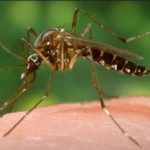The country of 208 million is grappling with the worst outbreak of yellow fever in decades.
So far this year, 300 people, including several tourists, have died from the virus, which has hit the outlying areas of the country’s largest cities, Rio de Janeiro and São Paulo, particularly hard, threatening to become this country’s first-blown urban epidemic since 1942.
“We are going to act preventively instead of reacting with emergency measures as we have done,” Health Minister Ricardo Barros said at a news conference in Brasília, where he announced that health officials will need to vaccinate another 77.5 million people to reach the country’s entire population by April of next year.
The disease, normally found in the Amazon River Basin, broke out of its usual pattern in early 2016 and started moving south and east toward the country’s largest cities, prompting the declaration of a public health emergency last year.
Some Brazilians panicked and began killing monkeys in urban parks in the mistaken belief that doing so would slow the spread of the virus. Even though mosquitoes transmit the virus, monkeys are often the first victims of yellow fever and a strong indicator of the presence of the virus.
Yellow fever did not make it to urban centers last year, and when cases dropped off during the cooler winter months, Barros declared the outbreak over. Despite that, he said at the time that vaccination efforts would be stepped up.
But critics say health officials failed to act aggressively enough, which left them scrambling when the virus appeared near São Paulo, Brazil’s biggest city, in this latest outbreak. Efforts to vaccinate 23 million people this year have been hampered by false rumors about the vaccine.
The U.S. Centers for Disease Control and Prevention recently raised its alert level for visitors to Brazil and urged travelers to get vaccinations first.
“We don’t want this to happen again next year, and the best preparation is vaccination,” Adeilson Loureiro Cavalcante, head of the Health Ministry’s prevention unit, said at the news conference.
The virus kills 3 to 8 percent of those who are infected, but the vaccine, while highly effective, is not harmless. About one recipient in 100,000 suffers a dangerous reaction like jaundice or hepatitis and in rare cases, the vaccine has killed recipients.
Until now, Brazilian officials had ruled that given yellow fever’s limited reach, it was not worth the risk to vaccinate the entire population.
The nationwide vaccination campaign will be rolled out gradually, initially focused on São Paulo, Rio de Janeiro and Bahia states, where health officials have been administering partial doses with one-fifth the normal vaccine because of shortages of stock.
Source: Pulse.ng



